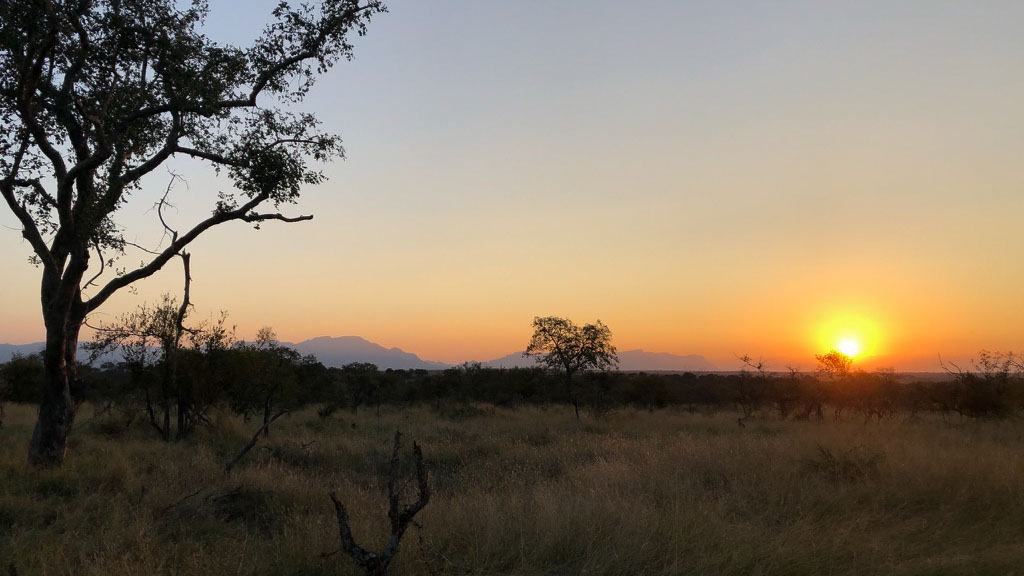
Having been born and raised in Northern Kenya I have a natural love and passion for wildlife. As a Shamba Keeper at Angama Mara, I get to spend every day surrounded by a bountiful garden and clucking chickens — but my ultimate dream is to become a guide and share my knowledge and passion with guests.
I had already completed my bronze Kenya Professional Safari Guides Association qualification as the first step towards my goal, when the opportunity arose for me to put my theory into practice through the Kilele Fund (started by Mama Nicky Fitzgerald in partnership with Angama). I applied to study at the EcoTraining Guiding School in South Africa and was honoured to be selected as one of the first recipients of the fund.
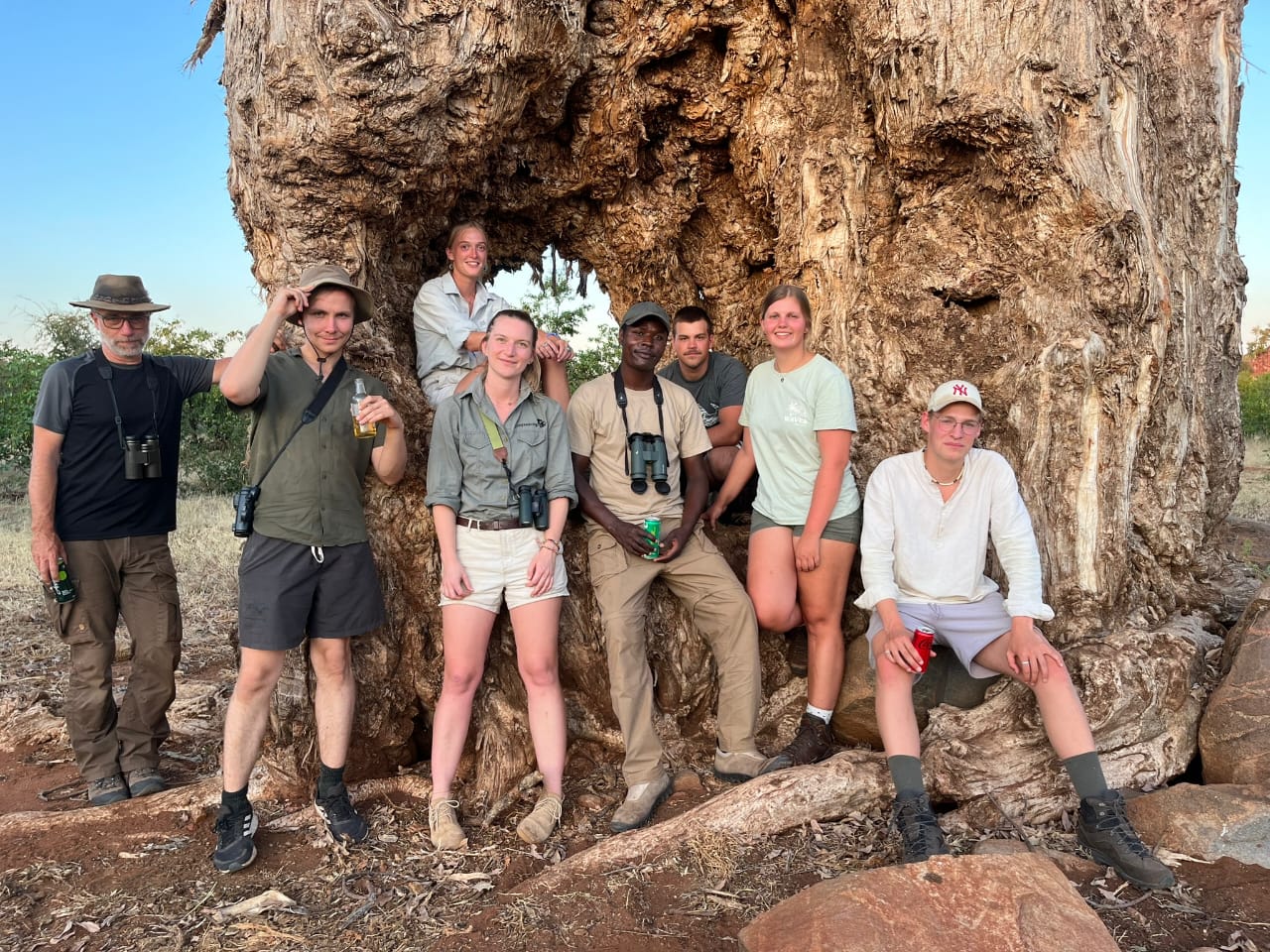
Arriving for our first day of EcoTraining at Pridelands, in the Greater Kruger National Park, I joined an eclectic mix of passionate students. Together we would navigate the new terrains, decipher cryptic clues and have dangerous encounters with the Big 5.
I’m used to the Mara with its open plains spanning across the horizon but the Kruger is deeply vegetative with narrow pathways. This necessitates a tracker to spot or follow animals by identifying their tracks and giving signs from the front of the vehicle — also known as the 'hot seat'.
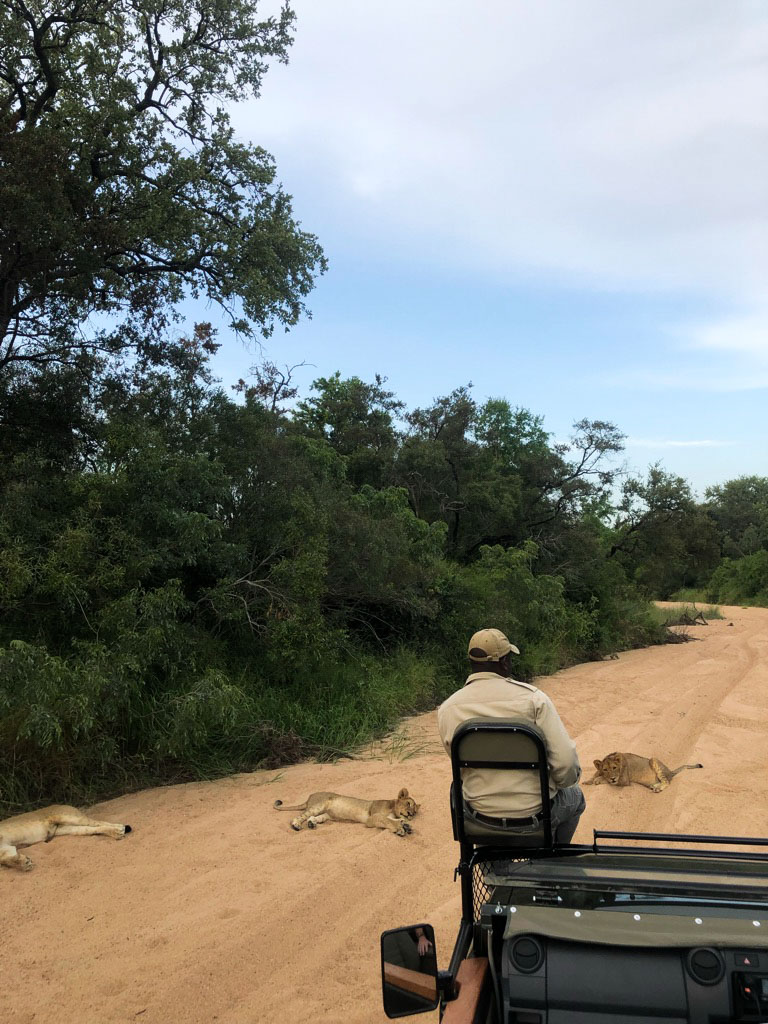
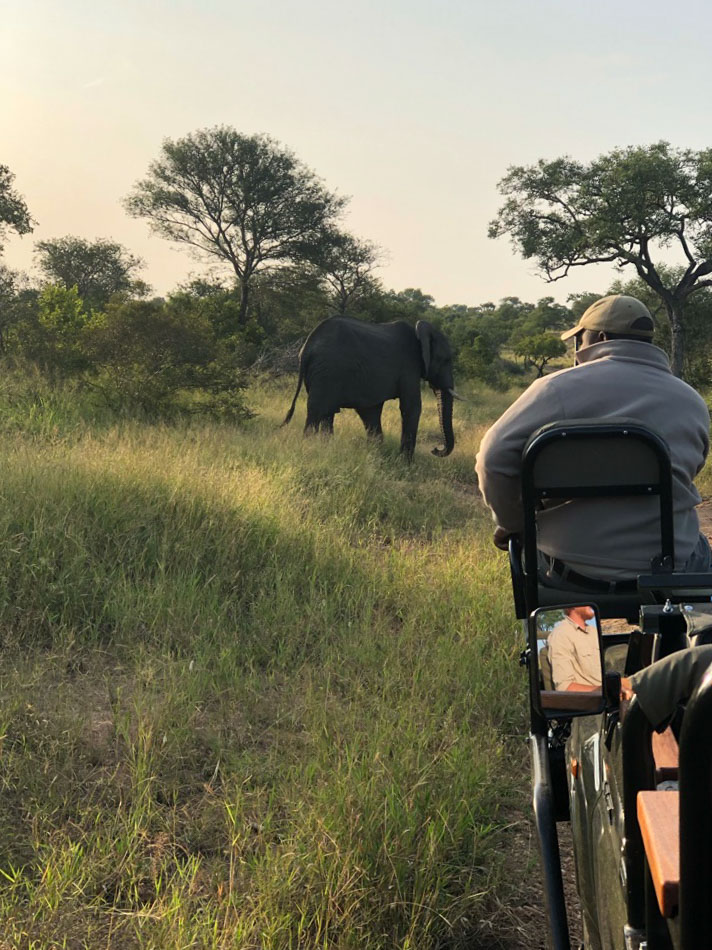
One day, I was sitting in the tracker seat as our vehicle slowly made its way to a marshland. As the tracks got fresher and the atmosphere more tense, I signalled to the driver to stop as the tracks quickly disappeared into the dense vegetation. I took out my binoculars and did a quick scan of the area.
I noticed that everyone had suddenly fallen silent. Instinctively, I lowered my binos and noticed a lioness by my feet, staring straight at me. I immediately went cold and remained like a statue. As I imagined losing a chunky bite of my leg, I thought of my daughters and my beautiful country Kenya. I even recounted the many lion encounters I had survived while herding our cows in Laikipia. A sharp squeal brought me back to life as the lioness had used our vehicle as cover to hunt down a young warthog successfully.
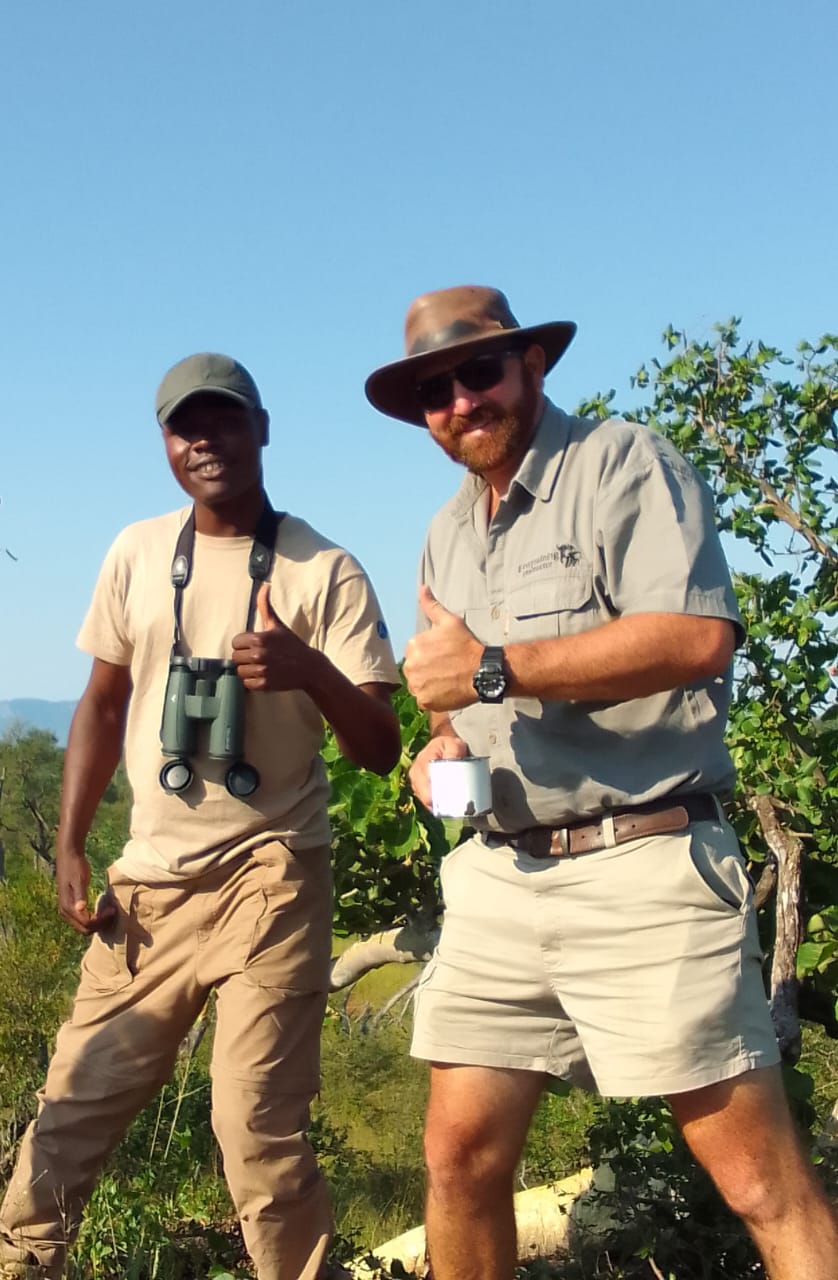
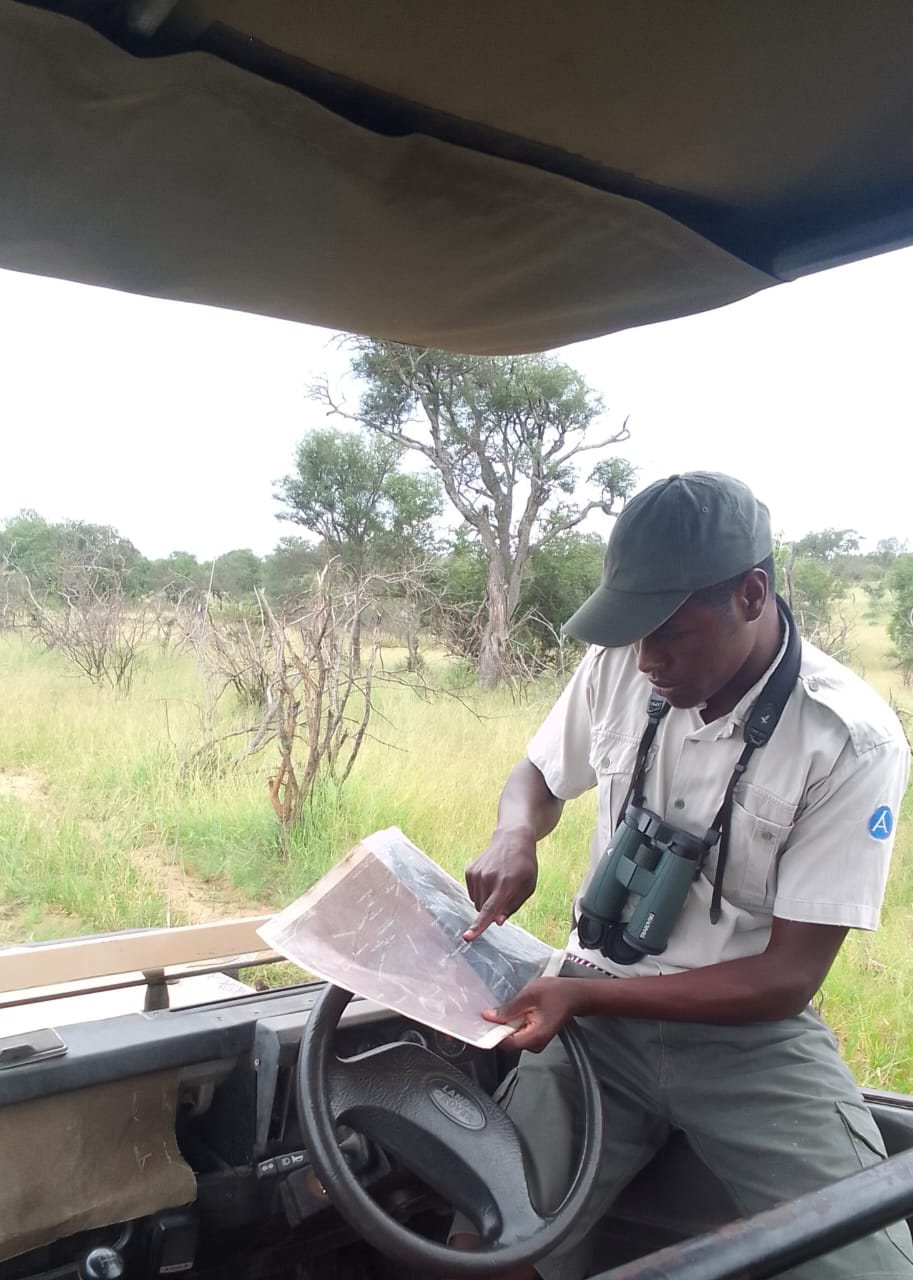
Our training also entailed daily walking safaris where we would track animals and sometimes, a traditional Khoisan guide would join us. As the first inhabitants of southern Africa, the Khoisan have traditions and methods that span many years and generations. Slowly, we created a holistic bond with nature, developing a keen interest in anything crawling, gnawing, flying above or lurking behind us. Every day presented something new in the vast Kruger — we even safely captured and released snakes.
One morning, as we headed back towards camp on foot, a familiar stench warned us of a roaming elephant bull in musth. With several run-ins in the past few weeks, we thought we were well prepared to handle any elephant. But the wild will always remain unpredictable.
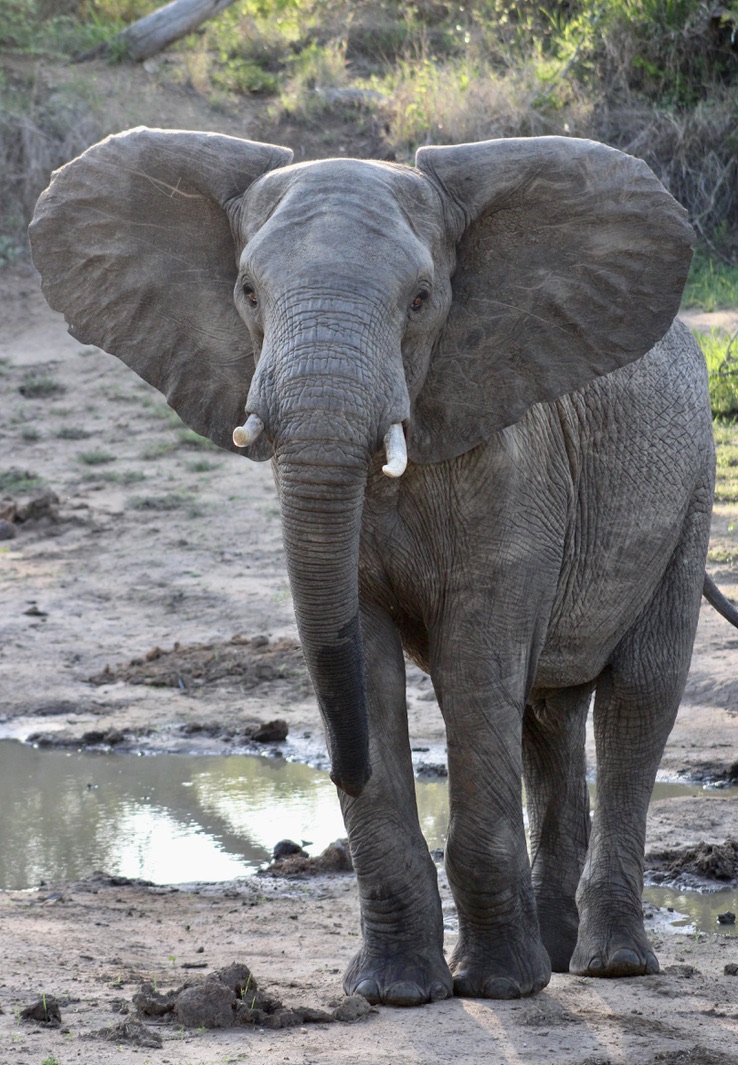
We decided on the safest path to escape but soon the bull came chasing after us. We quickly fell into 'formation' — standing in a single file with the first and second emergency rifles facing the elephant in case it didn't stop (the experienced training guides walk with rifles, one in the front of the line and one in the back, in case of emergency situations such as this). We then had to remain calm and silent till we were able to get away. Just before we reached the camp, however, we heard another crash and a few metres behind us was our agitated giant — head shaking, ears spread, trunk raised and legs dripping with this pungent liquid. We all held our breath and prayed to our gods.
Our instructor, standing at the front as 'first rifle', lowered his weapon, walked up to the bull and just stared straight into his eyes. Then, raising his hands in the air, he started making the ‘calm down’ sign, waving his arms. The bull took one last look at us and quickly ran off as we all breathed a sigh of relief.
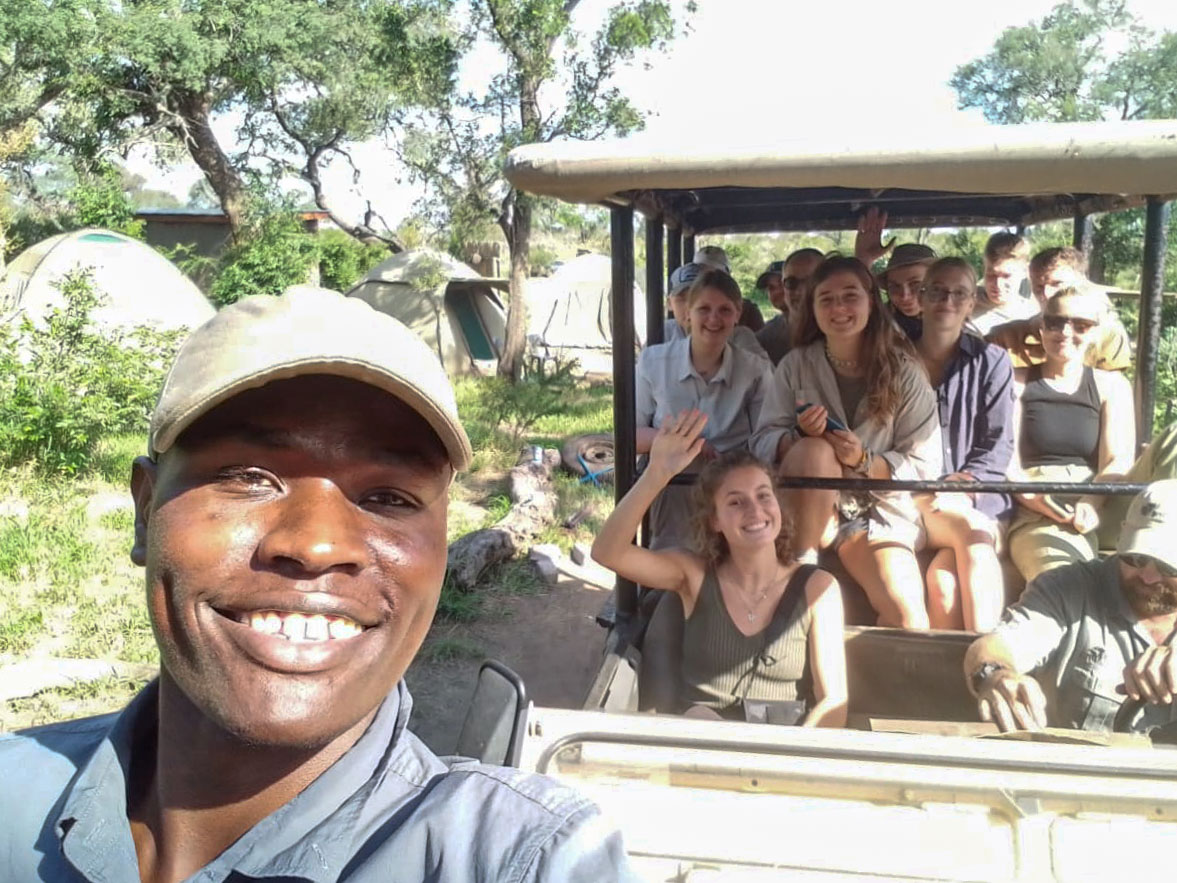
A new favourite became the night drives which don't happen in the Mara as the park closes at dusk. I will forever remember the eyes of Verreaux’s eagle owl and the four-second interval of piercing sound of the scops owl. They were not alone in their chorus, as we heard the raspings of leopards, the laughter of hyenas and occasionally, the lions who would announce their territories with thunderous roars.
Above our open vehicles, the sky would beam with constellations of stars. Growing up, I always used the Southern Cross constellation to determine my direction. As a guide, how sweet to link and weave these together into a memorable night. The next day starts all over again with a joyful, ‘All stations, this is Jeremy from EcoTraining going mobile towards twin pans in the northerly direction. Any updates?’
I would like to thank God for the grace, the Kilele Fund for funding my dream and the Angama family for their love and care. Thank you to the wonderful Kubili House team for welcoming me to your beautiful home and for laying the foundation before I began my training — epic game drives with Dex, tracking with Stevie and botany lessons with Craig. Finally, to the EcoTraining instructors, I will always be grateful for the experience and knowledge gained under your guidance.
The Kilele Fund was started by Nicky Fitzgerald in partnership with Angama. 'Kilele' means peak in Swahili, an apt name as the Fund helps Angama team members who want to further their careers or pursue opportunities to reach their own peak.
Filed under: Stories from Angama
Subscribe for Weekly Stories
Comments (1):
27 August 2023
What an inspirational and exciting story. We loved meeting you in the shamba at Angama last November. Thrillec your dream is being realised.
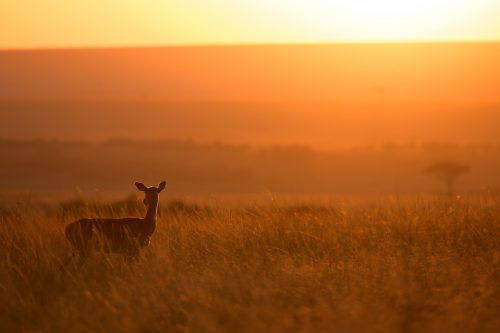
Rates & Availability